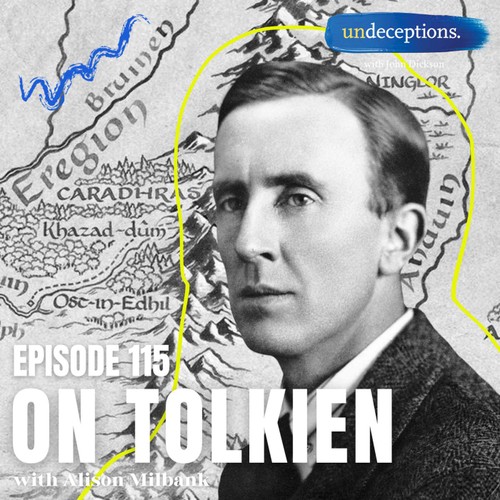
 Undeceptions with John Dickson
Undeceptions with John Dickson 115. On Tolkien
Dec 3, 2023
Unpacking J.R.R. Tolkien's inspiration behind Middle Earth, his Christian worldview, and the influence of Catholicism on his life. Exploring the origins of 'The Hobbit' and its connection to 'The Lord of the Rings'. Analyzing Tolkien's early academic career and his friendship with C.S. Lewis. Discussing the significance of the Eucharist in Tolkien's life and its influence on his writing. Delving into the parallel between Jesus washing his disciples' feet and Tolkien's emphasis on selfless service. Examining the relation between Tolkien's stories and his Christianity and reflecting on old tales and a plea for support.
Chapters
Transcript
Episode notes
1 2 3 4 5 6 7 8 9
Introduction
00:00 • 4min
The Life and Beliefs of J.R.R. Tolkien
03:59 • 4min
J.R.R. Tolkien's Early Years and Education
07:59 • 30min
The Joy and Grace of Fairy Stories
37:40 • 3min
The Influence of Catholicism and Tolkien's Belief in the Gospel as the Greatest Fairy Story
40:18 • 6min
The Significance of the Eucharist in Tolkien's Life
46:10 • 13min
The Humble Sacrifice and Ultimate Myth
59:20 • 5min
Tolkien's Christianity
01:04:13 • 15min
Reflections on Old Tales and a Plea for Support
01:18:48 • 3min
